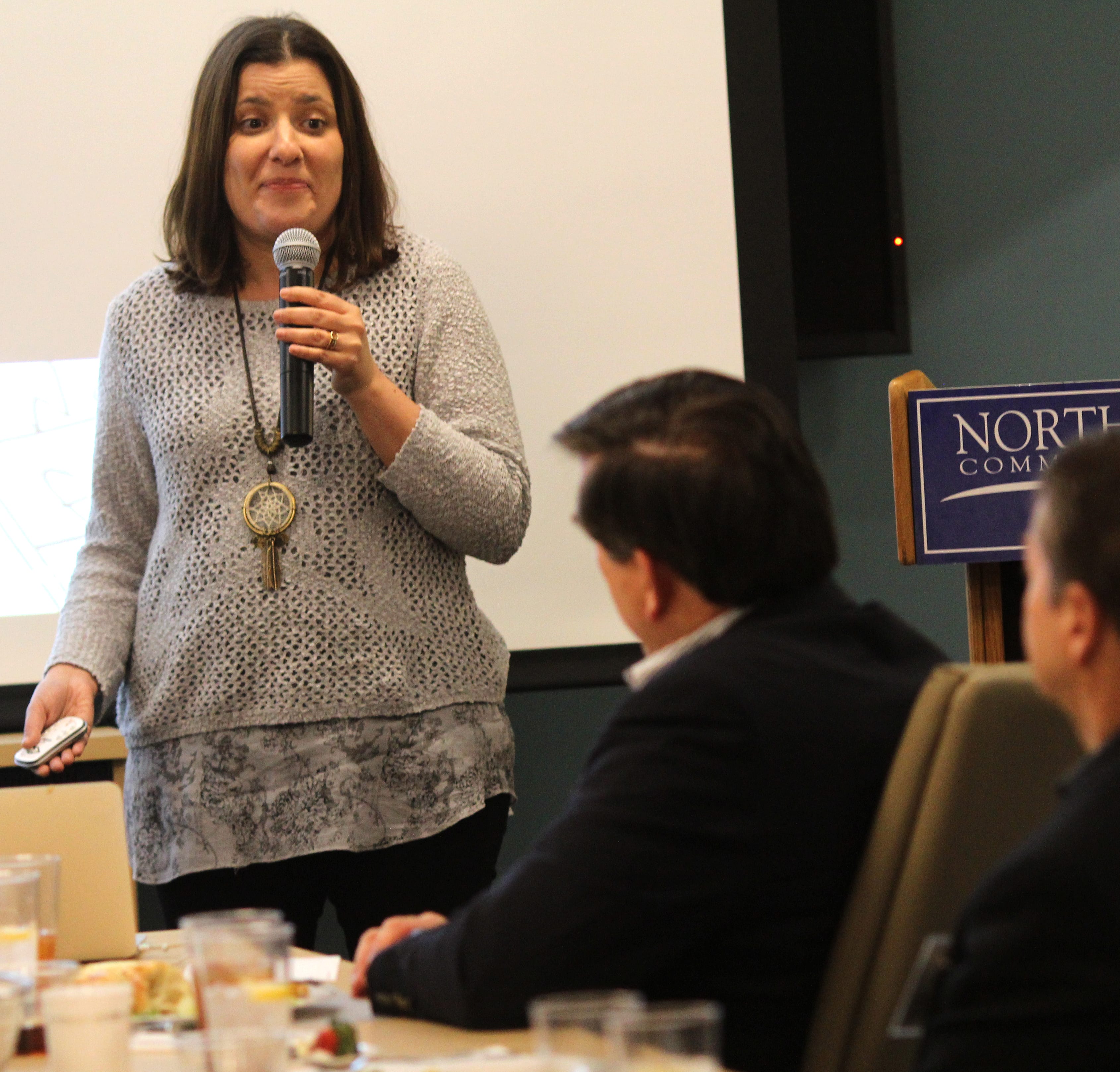LYNN — More than 70 percent of North Shore Community College students are homeless or hungry, according to a survey created by Dr. Sara Goldrick-Rab, Professor of Higher Education Policy and Sociology at Temple University and founder of the Wisconsin Hope Lab and the school’s guest speaker Tuesday night.
The community college’s board members addressed the problem in their first outside event in their newest boardroom on campus, organized by NSCC President Patricia Gentile.
“Last year in October we gave out the hunger and homeless survey that Dr. Goldrick-Rab created,” said Gentile. “We already knew our students are low income and have struggles, but we didn’t know how bad until the results of this survey came back.”
Gentile acknowledged NSCC’s students are mostly heads of households, single mothers, parents, and returning veterans who face a lot of challenges. As a result of the survey that indicated more than 70 percent of their students are homeless or hungry, the local community college developed a Here to Help page, started monthly mobile pop-up food pantries, rearranged financial support, and have been addressing the transportation student discount issues.
Goldrick-Rab, a two-time published author and well-known researcher in Sociology, gave an emotional presentation to the NSCC board members and the members of the Wharton Club of Boston. She kept her focus on college prices being higher than ever, the decline of US family incomes, and the major underfunding of most public colleges across the country.
“Students are in distress right now and we need to find effective solutions that will help,” she said. “I don’t do research to put it in books, I do research to get stuff done.”
Goldrick-Rab has been an advocate for the underserved, marginalized, and often forgotten students for the past 17 years, highlighting the hunger and homelessness issues in community colleges across the country. She attributes the strain on these student struggles to low budgets in community colleges for fundraising and not enough support being given to them by the state, compared to the support of Ivy League schools.
“We have to recognize that supporting students with food and housing is not being a social service agency, it’s being a community college,” said Goldrick-Rab. “If a few people in the room feel inspired by my research to support students in different ways then I’ve done my job.”

